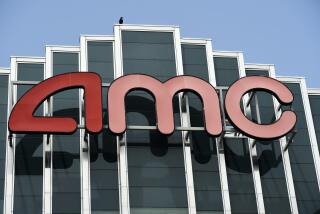GM to Buy Up to 20% of Stock, Seeking to Satisfy Shareholders
DETROIT — General Motors, eager to appease stockholders after a tumultuous year, said late Tuesday that its board of directors authorized a plan to spend nearly $5 billion to repurchase up to 20% of its common stock on the open market by the end of 1990.
The company said it will begin by spending up to $750 million this year to buy back as many as 10 million shares.
But GM, which has 319.4 million shares outstanding, didn’t provide a specific buy-back schedule for the remaining years of the program, and some analysts questioned whether the company can afford the entire repurchase program, which at current stock prices totals about $4.8 billion.
The announcement follows a year when stockholders saw GM earnings drop, a reduction in the company’s share of the domestic auto market and a controversial $700-million buyout of in-house critic H. Ross Perot. Since then, GM Chairman Roger B. Smith has launched a public relations campaign to improve relations with stockholders.
The buyback also comes as the United Auto Workers is beginning to gear up for nationwide contract talks with GM, scheduled to open in mid-summer. Although UAW officials did not comment Tuesday night on the repurchase program, the union in the past has expressed anger at similar projects that divert cash from GM’s struggling auto operations and into benefits for executives and stockholders.
Analysts said the huge buyback program seemed to be an outgrowth of meetings held around the country in recent weeks between Smith and institutional investors, who had been angered by GM’s separate buyback of Perot’s huge stake in GM’s Electronic Data Systems subsidiary.
Smith, angered by Perot’s public and private criticism of GM management, ousted Perot from GM’s board of directors last November, and GM bought back his stake in GM’s Class E stock for $700 million, at about twice the market value of the stock. The repurchase agreement, not offered to outside shareholders, angered institutional investors.
Analysts say those investors responded enthusiastically when Smith asked them what they would think of a general repurchase plan.
Indeed, corporate repurchase programs, when conducted in the open market at market prices, almost always please shareholders because they tend to drive up the price of a stock and indicate that management believes its stock is undervalued and thus is a good investment.
Still, industry analysts wondered whether GM, which has suffered from a rapid erosion in its share of the domestic car market during the past two years, could afford to mount such an ambitious, multiyear buyback program.
“Right now, I’d say no, they couldn’t afford to do the whole thing,” cautioned Michael Luckey, auto analyst with Shearson Lehman Bros. “The first-year program of 10 million shares is very modest, and after 1987, I think it’s very much an open question of whether they will even come close to 20% of the stock.”
Luckey noted that, while GM plans to pay for the program out of earnings from operations, its automotive sector is currently too weak to throw off the enormous amounts of cash needed to buy back so much stock.






